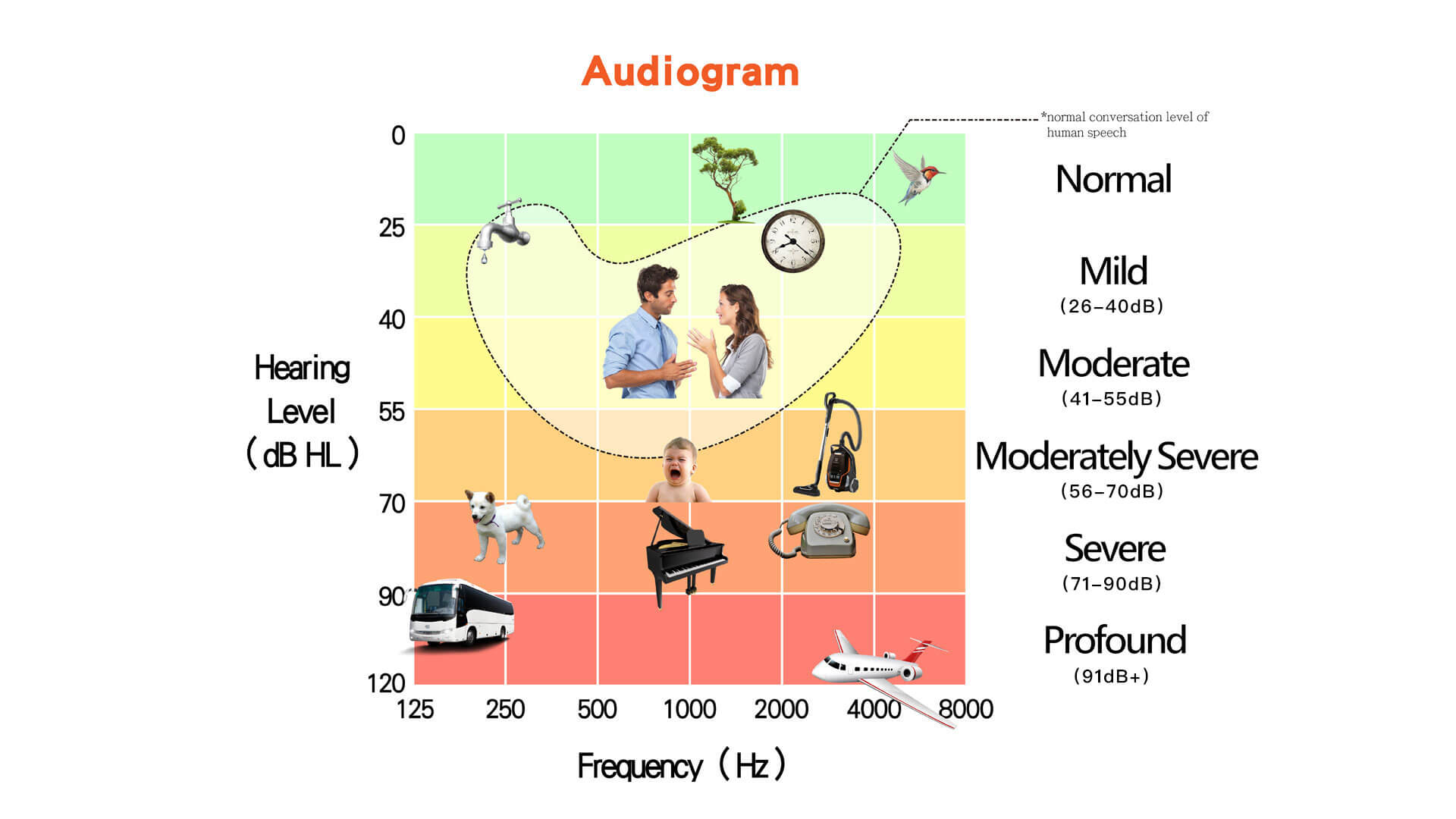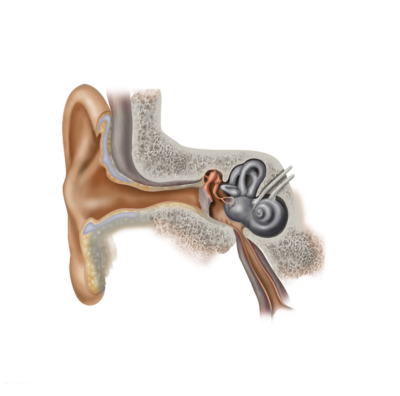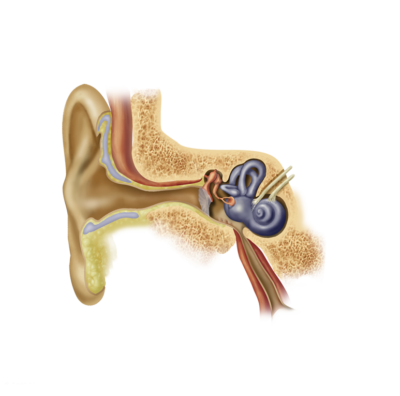Causes of Hearing loss in Adult 1. Gradual (as in aging); 2. Sudden (as in viral infection, meningitis etc.); 3. Fluctuating (as in Meniere’s Disease)
Hearing loss is measured in decibel (dB). This number represents the softest level one can hear. In general, people with normal hearing (-10 to 25 dB) can hear most speech sounds in quiet and comfortable listening situations. If one can only hear sounds when they are at 30 dB or more, he or she may have a hearing loss. The levels of hearing loss are generally classified as mild, moderate, moderately-severe, severe, and profound.






